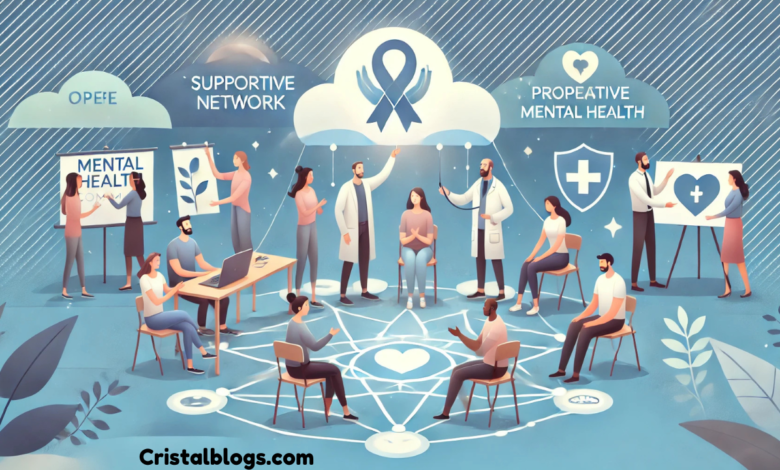Wang Suicide Prevention Jennika Cardenas: Pioneering Mental Health Advocacy and Suicide Prevention Strategies

Suicide prevention is a critical factor of mental health care, with many experts dedicating their careers to comprehending and addressing the complex factors that contribute to suicide risk. Among those who have made significant contributions to suicide prevention, Kedar Wang and Jennika Cardenas stand out as key figures. Their combined efforts in mental health advocacy, suicide prevention strategies, and community engagement have saved lives and inspired change in how we address mental health crises. In this article, we will explore the work of Wang and Cardenas, their contributions to suicide prevention, and how their strategies are transforming communities and saving lives.
The Role of Kedar Wang in Suicide Prevention
Kedar Wang has been a leading figure in the field of suicide prevention, known for her data-driven approach to understanding and mitigating suicide risk. Wang’s work focuses on identifying at-risk individuals early and providing them with the necessary tools and resources to manage their mental health. By analyzing trends and risk factors, Wang has developed intervention strategies that target high-risk populations, including veterans, students, and community members dealing with mental health challenges.
Wang’s emphasis on early intervention is key to her approach. Suicide is often preventable when warning signs are recognized in time, and Wang has been instrumental in creating systems that help identify these signs. Through collaboration with schools, healthcare providers, and local organizations, Wang has helped develop a network of support for those at risk of suicide. Her work includes training programs for educators, healthcare professionals, and community leaders to spot signs of mental distress and provide appropriate intervention.
In addition to her work in early identification, Wang has been a strong advocate for reducing the stigma surrounding mental health and suicide. Many individuals who struggle with suicidal thoughts feel isolated and ashamed, which often prevents them from seeking help. By promoting open conversations about mental health, Wang has helped to create environments where people feel safe to reach out for support.
A Holistic Approach to Suicide Prevention
One of Wang’s most significant contributions is her holistic approach to suicide prevention. She believes that addressing suicide requires more than just crisis management; it requires a cultural shift toward empathy, support, and understanding. Her approach emphasizes the importance of community involvement, creating safe spaces for individuals to communicate their struggles, and ensuring access to professional help when needed. Wang has also worked extensively on reducing the stigma associated with mental illness, helping to make mental health care more accessible and less stigmatized.
Integrating Mental Health Resources into Communities
Wang has been a key advocate for integrating mental health resources into communities, particularly in military environments. Her work at the March Air Reserve Base, where she served as a Prevention Specialist, demonstrates the success of integrating mental health resources into a supportive environment. Wang’s work involved leading efforts to reduce instances of suicide, sexual assault, and other crises affecting military personnel and their families. This initiative also included education and training to help military personnel cope with the unique stressors they face, such as frequent relocations, deployments, and combat-related trauma.
By creating a supportive network and offering specialized training to military families and personnel, Wang has helped to reduce the incidence of suicide within these high-risk communities. Her efforts at March Air Reserve Base exemplify her commitment to creating safer, more supportive environments for those at risk.
Jennika Cardenas and Her Role in Suicide Prevention
Jennika Cardenas, like Kedar Wang, is a passionate advocate for mental health and suicide prevention. Her work is centered on building strong, supportive communities that can effectively respond to mental health crises. Cardenas’ approach to suicide prevention is community-driven, focusing on creating networks of care that support individuals at every stage of their mental health journey.
One of Cardenas’ key strategies is providing education and training to community members. She works with schools, local organizations, and businesses to teach individuals how to recognize the signs of mental health distress and how to respond appropriately. This community-focused approach is based on the belief that mental health care should not be siloed but rather integrated into the fabric of everyday life. By empowering individuals to recognize warning signs and take action, Cardenas has helped to build a stronger safety net for those who may be at risk of suicide.
Reducing the Stigma Around Mental Health
Like Wang, Cardenas is committed to reducing the stigma surrounding mental health. Many people who struggle with suicidal thoughts feel ashamed and fearful of being judged, which often prevents them from seeking help. Cardenas has worked tirelessly to change the conversation around mental health, advocating for open and honest discussions that allow people to seek support without fear of being stigmatized. Her work has contributed to a growing movement in which mental health is treated with the same urgency and importance as physical health.
Training and Support for Suicide Prevention
Cardenas also focuses on providing training for individuals who may encounter those in mental distress, such as educators, healthcare workers, and community leaders. Through this training, she ensures that people are equipped with the knowledge and skills necessary to respond to a suicide crisis. This training includes teaching individuals how to approach someone in distress, provide emotional support, and connect them to professional resources.
By fostering a culture of concern and empathy, Cardenas has been able to ensure that people at risk of suicide feel supported and understood. Her efforts have empowered communities to take an active role in suicide prevention, recognizing that everyone has a part to play in safeguarding the mental health of others.
A Shared Commitment to Suicide Prevention
Both Kedar Wang and Jennika Cardenas are deeply committed to reducing suicide rates and improving mental health outcomes. While their approaches may differ—Wang’s being more focused on early intervention and data-driven strategies, and Cardenas’ being community-driven—both share a common goal: to create a world where suicide is no longer a primary cause of death and where individuals struggling with mental health issues feel supported and empowered to seek help.
Their combined efforts have contributed to a shift in how society approaches suicide prevention. Rather than focusing solely on crisis management, they advocate for a comprehensive, proactive approach that includes education, early intervention, and community support. Through their work, Wang and Cardenas are helping to change the way we think about mental health and suicide, moving from a place of fear and silence to one of openness, support, and action.
Conclusion: The Importance of Community in Suicide Prevention
The work of Kedar Wang and Jennika Cardenas highlights the importance of community in suicide prevention. Both experts have demonstrated that reducing suicide rates requires more than just individual endeavors; it requires a collective commitment to creating supportive environments, offering resources, and fostering open discussions about mental health. By integrating mental health care into communities and empowering individuals to take action, Wang and Cardenas are helping to create a stronger, more resilient society that can respond to mental health crises effectively and compassionately.
As we move forward, we must continue to support and amplify the efforts of individuals like Wang and Cardenas. Suicide prevention is an ongoing challenge, but with the right strategies and a commitment to creating supportive communities, we can make significant progress in reducing for everyone. If you or someone you know is struggling with thoughts of suicide, remember that support is available through resources like the 988 National Suicide Prevention Hotline and local community organizations dedicated to mental health care.




